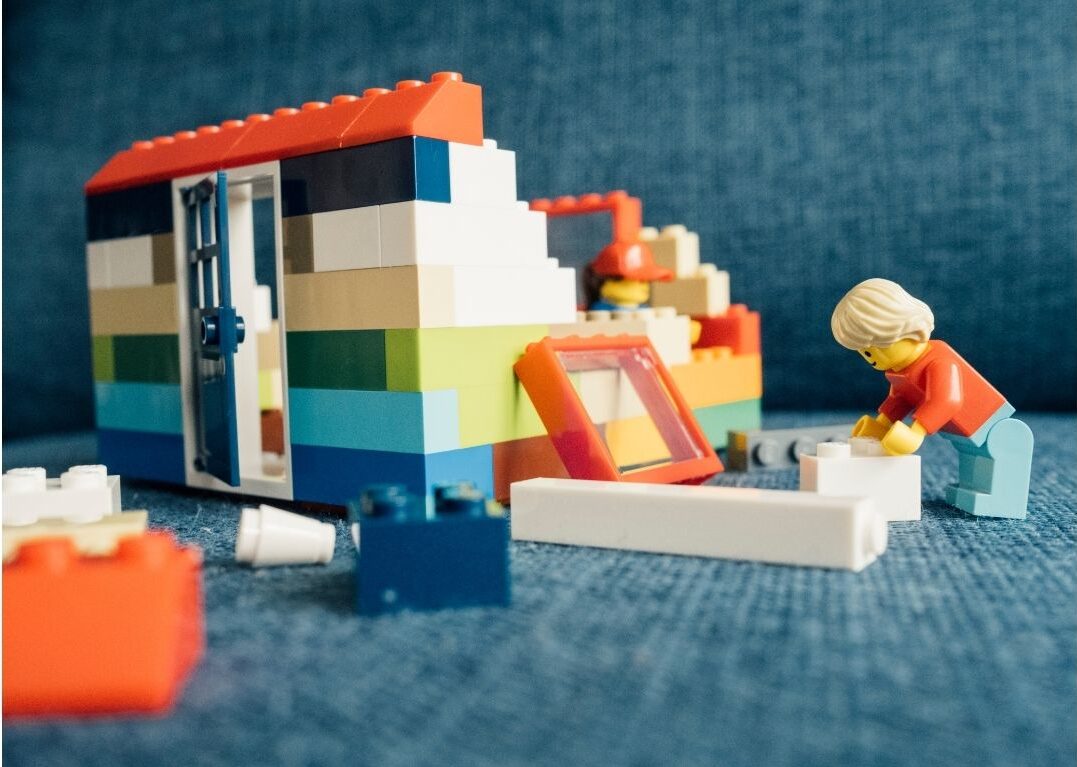LEGO®-Based Therapy: Building Social Skills One Brick at a Time
LEGO®-Based Therapy (or LEGO® Therapy) is a structured, play-based group intervention that uses building projects to teach social communication, teamwork and problem-solving. It’s child-led, evidence-informed and highly motivating, especially for children who enjoy hands-on play.
Why LEGO®-Based Therapy works
LEGO®-Based Therapy turns a familiar, motivating activity into a social learning lab. The features that make it effective:
- Naturalistic practice: Building tasks create authentic opportunities to request, give instructions, negotiate roles and solve problems together. These skills that transfer to school and everyday social situations.
- Roles and structure: Clear roles (Engineer, Supplier, Builder) scaffold turn-taking, sequencing and cooperative language while balancing challenge and predictability.
- Motivation + repetition: Children who like building are naturally engaged; repeated practice across sessions builds automaticity in social routines.
- Strengths-based: The approach is neuro-affirming, i.e. it uses the child’s interests and strengths as the entry point for learning, rather than forcing a child to perform in unfamiliar ways.
Research (LeGoff 2004; LeGoff et al., 2014) supports its effectiveness, particularly for autistic children, and many clinicians apply the model for learners with ADHD, mild intellectual disability, social anxiety and pragmatic language needs.
Who benefits?
LEGO®-Based Therapy is commonly used for children, teens and young adults who need support with:
- Pragmatic/social communication (starting/maintaining conversation, requests, turn-taking);
- Cooperation and teamwork skills;
- Problem-solving and planning in a group context; and
- Confidence in social interactions.
In short, if you are still wondering, yes it’s suitable for neurodivergent and neurotypical kids alike. It’s because the group format helps participants practice social skills with peers in a supported environment.
Programme format
- Age range: 5–17 years (grouping by age & learning needs)
- Group size: 3 participants (small groups provide meaningful turns and practice)
- Session length: 60 minutes
- Frequency: Weekly / Bi-weekly
- Programme length: 8 weeks (longer modules possible)
- Facilitators: 1– 2 registered and experienced clinicians (Speech therapist, psychologist)
- Setting: Joyful space

Concrete skills practised
- Giving/ receiving clear instructions
- Sequencing & planning (reading instructions, anticipating next steps)
- Turn-taking and waiting
- Problem solving and collaborative communication
- Repair strategies after communication breakdowns
- Perspective taking and flexible thinking
Possible questions
Q: Isn’t this just play? How will it help my child in school?
A: Play is our vehicle for targeted social learning. We structure sessions with explicit learning goals, scaffolds and feedback so that play becomes practice for real-world skills. When teachers and parents reinforce them at school/home, participants will be able to generalise these skills.
Q: Will my child be forced to speak or join?
A: No. The model is neuro-affirming: facilitators follow the child’s lead, use prompts and supports (visuals, role cards, AAC as needed) and create low-pressure chances to practise.
Q: My child prefers solitary play, will this work?
A: Yes. We start with small, predictable steps and roles that match a child’s strengths (e.g., engineering role requires instruction following rather than overt social talk). We scaffold social engagement through familiar interests.
Q: Do you use original LEGO® sets? Is LEGO® trademarked?
A: We use authentic LEGO® bricks and sets for consistency with evidence-based practice. LEGO® is a trademark of the LEGO Group, which does not sponsor, authorize or endorse this programme.
Practical logistics
- Age & grouping: We place participants with similar developmental/ learning profiles together for optimal practice.
- Cost & commitment: Each LEGO therapy package run for 8 sessions at $720 per package; siblings and referrals enjoy $50 off.
- Safety & hygiene: We maintain hygienic toy handling and a safe play environment.
- Accessibility: We provide communication and participation support as required.
Please contact us to discuss suitability, and upcoming groups. We’ll do a brief intake to match your child to the right cohort.
References
- LeGoff, D. B. (2004). Use of LEGO® as a therapeutic medium for improving social competence. Journal of Autism and Developmental Disorders, 34(5), 557–571.
- LeGoff, D. B., Gómez de la Cuesta, G., Krauss, G. W., & Baron-Cohen, S. (2014). LEGO®-Based Therapy: How to Build Social Competence Through LEGO®-Based Clubs for Children with Autism and Related Conditions. Jessica Kingsley Publishers.
